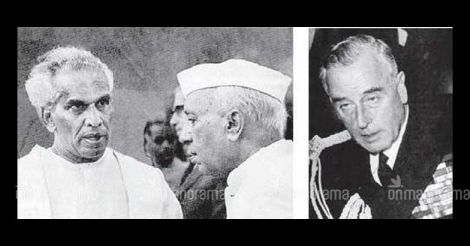What happened on August 15, 1947? Every child knows that India became independent at the stroke of midnight that day.
Yet India was not a sovereign republic until January 26, 1950, when the Constitution came into effect. So what was India’s legal status in the intervening years?
The dominion of India was free but not sovereign. The British crown remained the head of state though he had dropped the title of the emperor of India. Lord Mountbatten was no longer the viceroy but he was appointed by the British king as India’s governor general. When C. Rajagopalachari replaced Mountbatten as the governor general on June 21, 1948, it was the king who appointed him.
The dominion status was a hotly debated topic during the years of the freedom movement. Early nationalists had only asked for a dominion status. They stepped up their demand to sovereignty when the British refused to heed them.
The idea dawned on the Indian freedom movement at the end of the 19th century when Britain granted dominion status to a few entities where the British had settled. Britain granted dominion status to Canada in 1861, South Africa in 1872 and Australia in 1900 within the Commonwealth (these countries would not use the name dominion officially until 1931), but refused to treat India on a par.
The refusal fueled the nationalist sentiments in India and the protests grew to a full-blown movement for sovereignty. The British knew they were losing ground and sent Mountbatten to India to wind up the raj by the end of 1948.
Neither the Congress nor the Muslim League, which wanted to carve out Pakistan, were prepared to wait that long. Jawaharlal Nehru and Mohammed Ali Jinnah agreed to accept domain status until a republican constitution was in place and Indians were ready to take over the administration.
Even Mountbatten wanted to avoid a sudden shift of power that could be embarrassing for Britain. He offered an early transfer of power if the Indian leaders were ready for dominion status.
The stage was set for an early transfer of power on August 15, 1947.
It was Nehru’s trusted companion V.K. Krishna Menon who mooted the idea of the temporary domain and successfully lobbied for it among the viceroy and nationalist leaders, as suggested by the logs of Allen Campbell Johnson, Mountbatten’s press secretary.
Read: Latest Nation news | East India Company: The vanquished is the master now

























 V.K. Krishna Menon, Jawaharlal Nehru and Mountbatten
V.K. Krishna Menon, Jawaharlal Nehru and Mountbatten